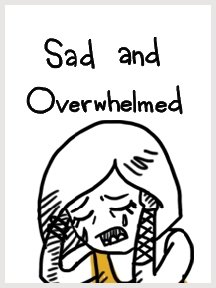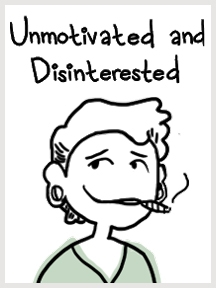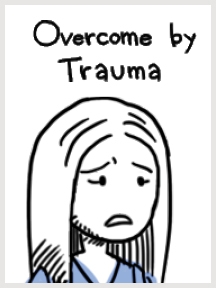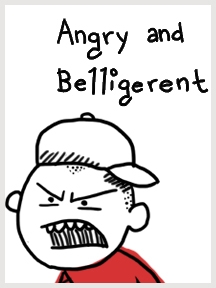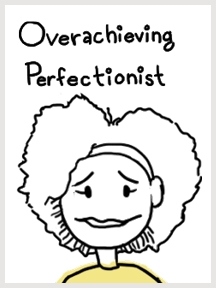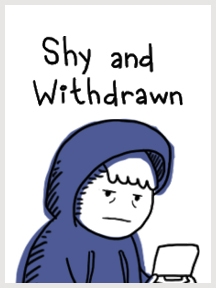Helping Teens and Families Live Happier Lives






Helping Teens and Families Live Happier Lives






Hi. Welcome to Teen Therapy Center. If you're here, it likely means that you're concerned,
maybe overwhelmed, just really unsure how to support your child if you're a teenager, and we
get it. Parenting can be incredibly challenging and even scary sometimes, but you're not alone.
At Teen Therapy Center, we take the time to really listen to you. Before we ever meet your kid,
we want to talk with you and fully understand your perspective, really see what you're seeing
at home. You are an incredibly important part of this process. Yes, we do protect your child's
confidentiality, but we don't push you out of the process. On the contrary, we really want to
invite you into it in a way that feels collaborative and respectful for all sides. Uh, one of
the skills that all of us therapists have here at Teen Therapy Center is we speak two languages;
we speak teenager and we speak parent. And with those translation skills, whether your child
is struggling with anxiety, mood swings, motivation, relationship issues, the list can go on and on, our goal is to help your family communicate better, understand each other more clearly, and find a healthy path forward together. Thank you so much for being
here. We're really glad you're here. Please give us a call. We're happy to have that complementary in-depth phone conversation to find the right referral for your family. Thanks again, and
we look forward to meeting you.
Worried About Your Teen? Teen Therapy That Starts by Listening to You.
Serving Woodland Hills, Calabasas, Encino, and surrounding areas with expert teen and family therapy.
We know how painful it can be when your teen is struggling and how hard it is to know what to do about it. Our therapists don’t just work with teens—we truly get them. And we listen to you, the parent, because your perspective matters. We like to say, “we speak teen, and we speak parent,” because real healing starts when everyone feels understood. Whether it’s anxiety, communication issues, or family conflict, we’re here to help your child—and your whole family—move forward with confidence.
Online and Phone Sessions Available!
Teen Therapy Center is offering virtual therapy through platforms like Zoom, FaceTime, or via phone call. Whether you attend session in-person or from home, our therapists remain committed to providing a high level of care, compassion, and support for you and your family.
A Team That Truly Cares
Our staff is a group of fun-loving professionals who come from a variety of backgrounds, bringing a wealth of experience and diverse perspectives to the table. This diversity allows us to connect with a wide range of clients, ensuring that we can provide the best possible care for every individual and family who walks through our doors.
We pride ourselves on our ability to bridge the gap that often exists between generations, making it easier for teens and their parents to understand each other and work together toward a common goal.
Our Latest "Tips on Teens" Video
Tips on Teens is our weekly segment on Facebook Live where Kent Toussaint answers your parenting questions. We cover a wide range of topics affecting teens and their families. We’ve archived all the videos right here on the site.
Click below to search our library of Tips on Teens videos for answers to your questions. As always, we love to hear your questions. Send them to us here.
your teenage son wants to date, but you're scared he's going to get distracted from school,
get his heart broken. What are you going to do? Well, let's talk about that today on Tips on Teens.
My name is Kent Toussaint. I'm a licensed marriage and family therapist, and I specialize in
helping kids, teens, and families to live happier lives. By the way, if you or someone you care
for could really benefit from talking to a family therapist, please reach out to us here at Teen
Therapy Center. Our contact information is down below. Now, let's jump into today's parent
-submitted question here on today's Tips on Teens. Recently, my teenage son, age 16, admitted
that he likes a girl and that they hang out. I appreciated that he told me the truth, but not happy
that he is going through this at this young age. We know the girl through and she's nice. I have
nothing against her or her family, but how do I tell my son to take it slow? Can't they be friends
for a few years and see how it goes? After
all, he is only 16 and she is 17. They have a long way to go in college and life. I don't want this
to distract their focus from school that they need at this age. I know most teenage relationships
don't last long, but if so, why go through the pain, etc., at this young age? Thank you for your
question. I think a lot of parents can relate to this. I have a cheesy catchphrase for this. Are
you ready for this? All right. You cannot stop the tide of love, but you can teach him how to swim.
What does that mean? It means that high school is not just about calculus and AP English. It's
about relationships and interacting with peers, figuring out who you are, how you fit in the
world. It's not just about the books. It's about the relationships. He's wanting to go into
this relationship. Sounds like a pretty healthy mindset. He's letting you know. I think, again,
you're not going to stop the tide of love. You're not going to say, just don't have those feelings.
He's going to have those feelings.
Love is powerful. How do you help him not stop the tide, but teach him how to swim? Help him go into
this relationship with boundaries. Still has to do his schoolwork. Still has to do his extracurriculars.
Still has to pick up his socks. Still has to have some family time, but also have this dating relationship.
It's scary for you. Will it end? Probably, but it's going to teach him so much about being in a
relationship and how to have healthier relationships down the line. This is likely not his
last relationship. He will likely have several relationships before he finds that right person
for the rest of his life. I think it's important for him to learn in real life settings with the
safety of your connection and your love and acceptance. Again, going over things like what
is consent? What are safe sex? What are the boundaries and rules about physical intimacy that
you want to have? Every family is going to be different. By the way, we have a full parent guide
on teen dating. It's a YouTube
video. You can check out the link below. It's a full video. I encourage you to check that out,
but I encourage you to help him along with this. Coach him. Teach him. Help support him so he has
a safe place to learn and fall on his face and get back up with your assistance. Thank you so much.
Again, my name is Kent Toussaint with Teen Therapy Center and the nonprofit Child and Teen Counseling.
Across both organizations, we have therapists for pretty much every budget. We're located
here in Woodland Hills. Thank you so much. We'll see you next time. Bye -bye.
Understanding Teen Mental Health
The teenage years are a period of immense change, growth, and challenges. Teen mental health is a critical area of focus at Teen Therapy Center because we understand the unique struggles teens face today. From navigating social pressures to managing academic expectations, teens often encounter overwhelming stress. Unfortunately, this can sometimes lead to more serious mental health concerns, such as anxiety and depression.
Anxiety in teenagers is more common than many realize. The constant pressure to excel in school, fit in socially, and plan for the future can create significant stress. This anxiety, if not addressed, can hinder a teen’s ability to enjoy life and achieve their full potential. Our therapists work closely with teens to help them identify the sources of their anxiety and develop effective coping strategies.
Depression in teens is another critical issue that we address. It’s not just sadness; it’s a pervasive feeling of hopelessness that can affect every aspect of a teen’s life, from their relationships with family and friends to their academic performance. Our therapeutic approach is designed to meet teens where they are, offering them a safe space to express their feelings and guiding them toward a brighter outlook on life .We believe that the mental health of a teenager is intricately connected to the well-being of the entire family. That’s why we offer family therapy for teens. Family dynamics can be complex, and when a teen is struggling, it often affects the whole family. Family therapy helps to address these challenges by improving communication, resolving conflicts, and strengthening the bonds that hold the family together.
At Teen Therapy Center, our family therapy sessions are tailored to meet the unique needs of each family. Whether it’s helping parents understand their teen’s perspective, resolving long-standing conflicts, or simply providing a space for open dialogue, our therapists are here to support you every step of the way. We work to create an environment where every family member feels heard and valued, and where positive change can take root. When we treat a teen, we treat the whole family.
Start Your Journey with Us
We offer individual, family, and group therapy, and we’re committed to helping you find the support that’s right for you. We understand that seeking therapy is a big step, and we’re here to make that process as smooth as possible. That’s why we’re happy to offer a free consultation to see if we’re the right fit for you and your family. If not, we’ll still help guide you to the support you need.
Don’t hesitate to reach out to us at (818) 697-8555. Whether you’re dealing with anxiety in teenagers, depression in teens, or seeking family therapy for teens, we’re here to help. We’d love to hear from you and start working together to build a happier, healthier future for your family.697-8555, we’d love to hear from you!
How does YOUR kid fit in?
























"Ask Kent" at CBS Morning News
Our Clinical Director, Kent Toussaint, appeared on his ongoing segment “Ask Kent” at CBS Morning News. Kent answered questions from parents about REAL parenting issues.
Subscribe here for updates from Teen Therapy Center
You’ll receive entertaining articles and information on upcoming parent workshops.


